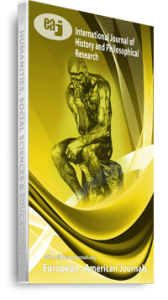Ecology always played important roles in historical determinism; and basically, also as landscapes for defense, assaults and as (motivational) totems. Since the 1970s, certain questions have engaged Igbo historians, anthropologists/ethnographers and commentators in recent histories of Igboland nexus the factors that accounted for the significance of Ahiara in Mbaise, for it to have been chosen as historically (ethnically) strategic for the Ahiara Declaration by Lieutenant Colonel Chukwuemeka Odumegwu Ojukwu in 1969. The paper undertook to discern the geographical importance of Ahiara vis-à-vis other similarly regarded territorial patches, such as the choice of Perestroika and Glasnot by Mikhail Gorbachev and why the Kenyans have always dominated the Marathon races in Olympiads; and in pronouncements made in ecological environments, such as Ahiara, Arusha in Tanzania, Kenya and Russia. Subsidiary questions raised were: Did Ahiara command a centrality in location in Igboland that it was chosen? Were the Ahiara a martial people that their territory was preferred to those of the Abam, Ngwa and Ohafia, who had evolved celebrated military ethos? Perhaps, the findings were convincing to have compelled Ojukwu to choose Ahiara for his “win-the-war’ manifesto. The paper concluded that the choice of Ahiara was, comparatively, apt; and portrayed an essential historicality. But the Ahiara Declaration was made at the twilight of the Republic of Biafra and could not have been, unarguably, useful for the war effort. Oral interviews were conducted while primary sources predominated in writing this paper.
Keywords: (historical) determinism, Ecology, Ethos, Military, ethnicity declaration., pronouncements

